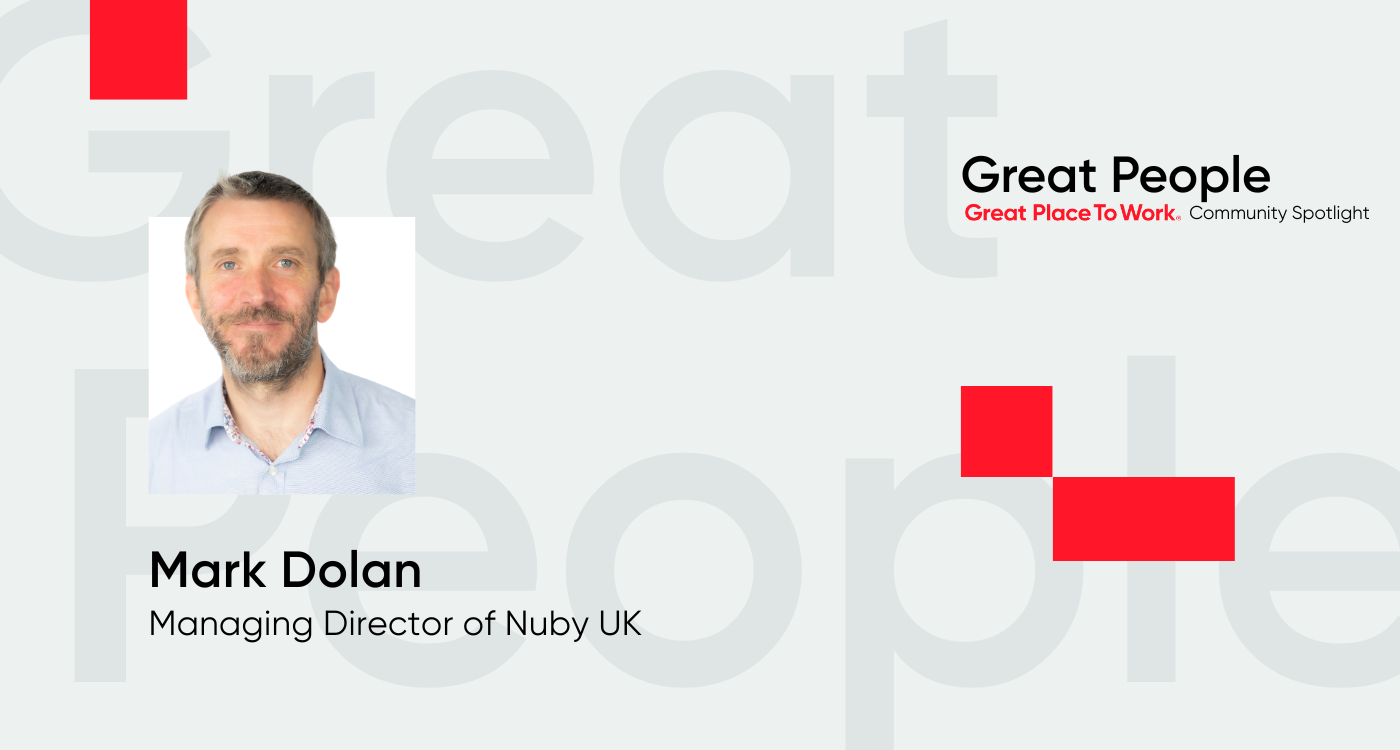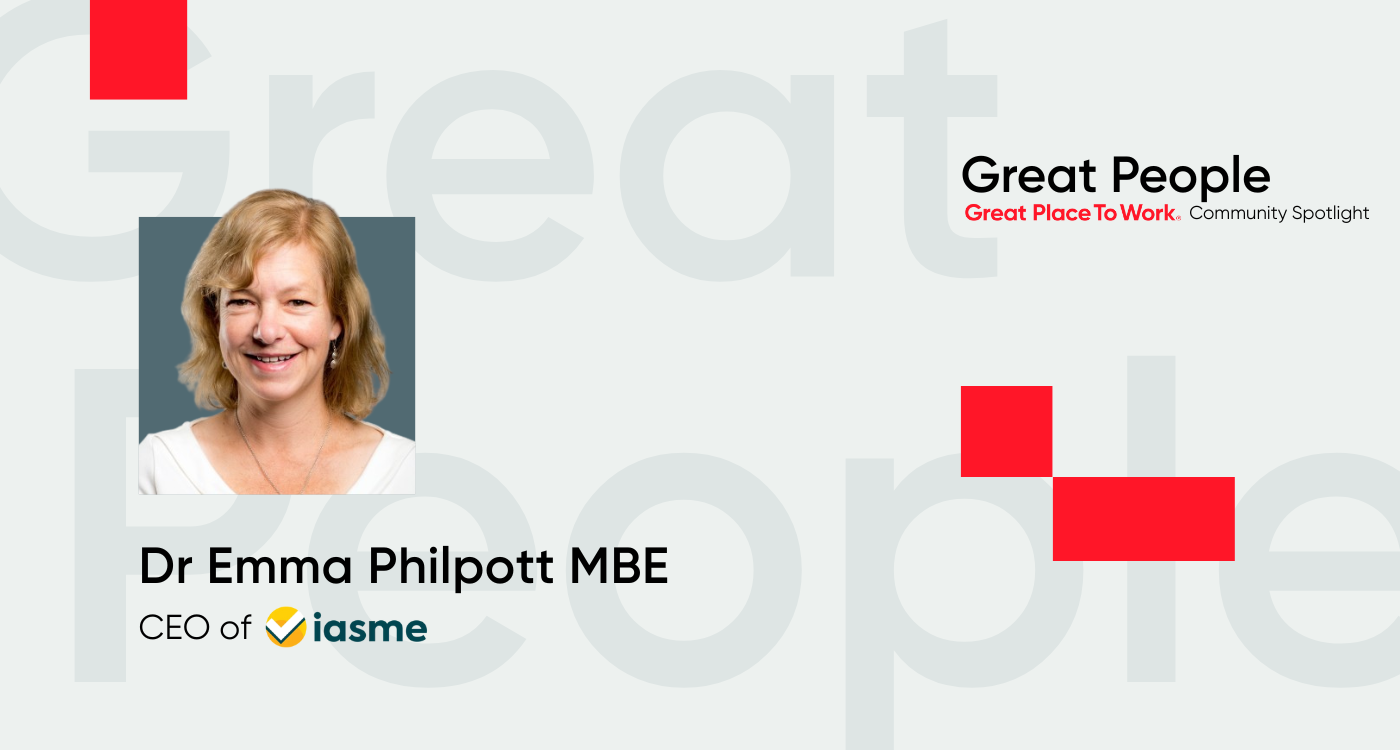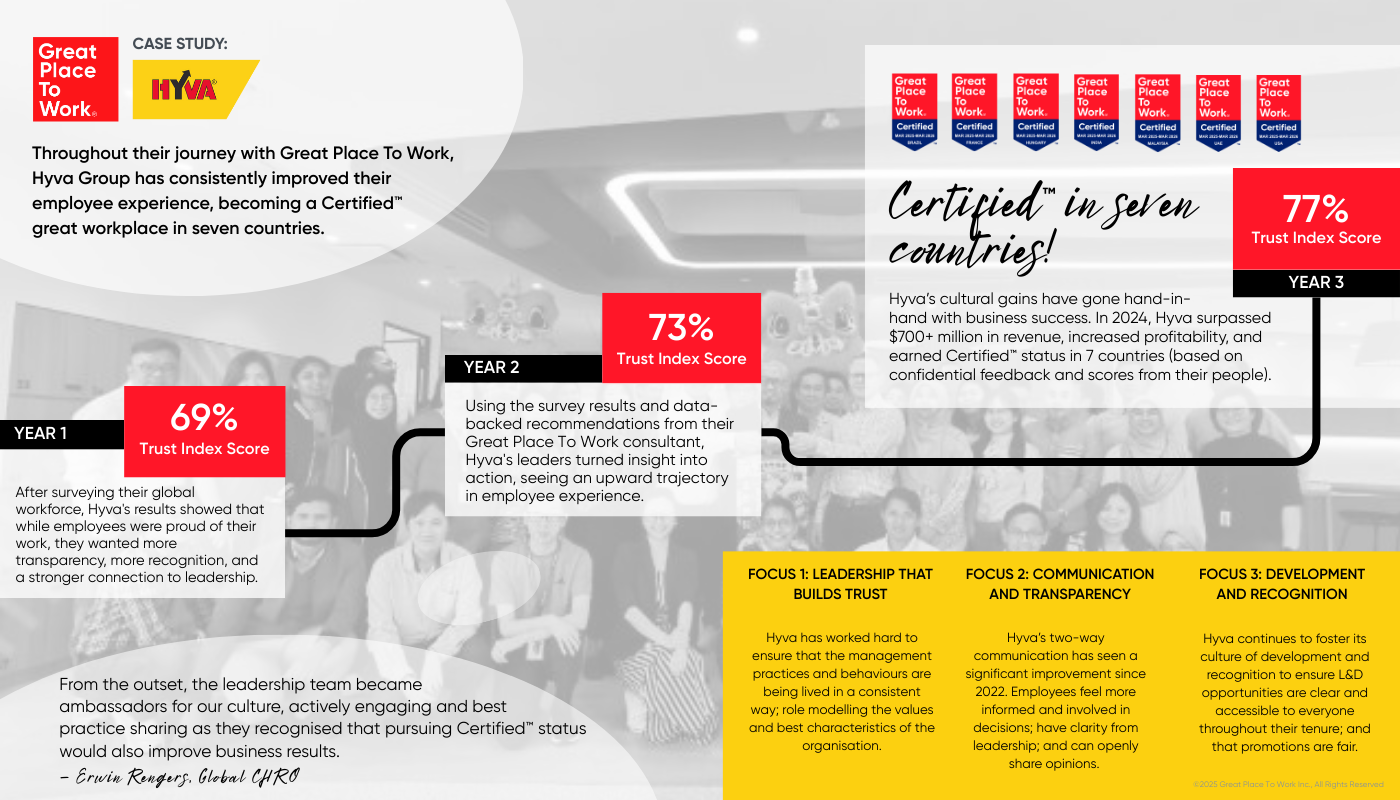Mark Dolan, Managing Director of Nuby UK, shares his approach to happiness at work, simplicity, and the benefits of remaining your authentic self as a leader.
How would you describe yourself and your career?
Mark: Having grown up in the Edinburgh area, my family and I now live in the beautiful countryside of Northumberland. Monday to Friday, I’m the Managing Director of Nuby UK, where we are on a mission to become the UK’s favourite baby accessories brand. And at weekends, I’m a willing taxi driver for my sport-obsessed boys of 12 and 9. I’m passionate about creating a work culture where people have a sense of belonging, can be themselves and get the right work-life balance so they can thrive.
How do you understand and drive the culture at Nuby?
Mark: I think first and foremost, we're very proud of the culture we have here. It's probably the biggest and most important thing to me and to the organisation. As MD, my biggest job is to foster and protect that culture.
It's quite hard to articulate culture. We have, probably like most organisations, a set of values that tries to define what it is. But they are only guidelines or guardrails. If I was just trying to articulate our culture, I think it's that hopefully if someone came in to observe our business, they would just say: 'They're a happy bunch'.
Sometimes in work, we overcomplicate potentially what we're looking for. In my view, if I can create an environment in which people are happy, then that's when they're at their best.
When our Great Place To Work survey feedback comes in, one of the top things that we offer which employees love is what we call the Crib (a play on our baby industry) – a free canteen. We offer free breakfast; have free home-cooked lunch meals every day. And people love it! It has come at a cost, but it's something which I think just resonates really well where people take time out, sit together, have that sense of community, and enjoy good food.
We do other simple things like encourage fresh air (we have two walks a day where you get 15 minutes, just go and have some fresh air, just relax). We have a very relaxed environment, people are casually dressed, we play music, we have lots of special events, we do sports days, the Easter hunt, all those kinds of simple things... But just to make work as normal as possible in reality, and as less corporate as possible. All with the intention of people feeling happy.
How does each person contribute to shaping the culture where you are?
Mark: We have 50 of us in one open plan office and shaping culture is much more organic to some degree than a large organisation. We don't need to have champions or official communication – there's just that sense and feeling of: how is everybody? And are we keeping within the values of the business on a daily basis?
I think it goes without saying that it really does start at the top with me, and leaders, in terms of role modelling the behaviours, but also just role modelling that culture of kindness and happiness. And without completely oversimplifying it, just try to be relaxed. I try to have a laugh, a smile on my face. I will go and speak to people a lot. And I've certainly found that puts people at ease. If people see that the leader seems like things are okay, it kind of just cascades down and people feel comfortable, happy, and can perform at their best.
Then, taking it from a different angle: is there somebody who's not behaving within that culture? That's something probably I'm quite protective of, just to understand if there is somebody. It's like a sports team: you can quickly have one person that actually starts to really impact that whole field of a small organisation. And I think it's important that I take it upon myself to understand why that person may be feeling or behaving in the way they are. And often just over a coffee, you can understand and get to the root cause of it. It can be something trivial, but nip it in the bud rather than let it grow and become something that becomes a problem.
But equally, sometimes it can actually be for that person – it's just not a cultural fit. We are not for everybody. We are very non-corporate. We have a laugh, and that doesn't always work for people. I'm really open with that. So if that's not for you, then find happiness in an organisation that is right for you. And we'll support them through that. I want everyone to really enjoy being here, but if you're not enjoying it, we'll try and do everything we can, but we can't always be that company that you're looking for.

How do you 'keep it real'?
Mark: Keeping it real is one of our values. It's probably the one that jumps out at me and I resonate with most. In simple terms, just trying to be as normal as possible. And genuinely just letting your guard down.
Over the years, I've become much more comfortable doing that. I've certainly worked for managers, or even probably been in a situation myself, where I've felt I have to behave or say or do things in certain ways that I'm expected to. And people can quickly see that disconnect between who I'm projecting to be versus who I probably am. That creates a kind of awkwardness. Our people see me as me, and then they become open, honest, and we can just have a really frank conversation – sometimes a difficult conversation – easily because you've got rid of that guard.
I think the approachable piece too: I very intentionally have a desk just like everyone else's desk, in our open plan office. I think people sometimes get annoyed because I just create reasons to drop by people's desks and have a conversation, see how they are, see what they're up to. Sometimes I get the 'go away, I'm busy' kind of look, but I think it's important that I do that because it makes that connection and bridge between leaders and everyone else.
Can you share some thoughts on having what we might call a 'no blame culture' – embracing mistakes as a part of doing business?
Mark: Yeah, we probably all can relate to this. I've observed it or been in an environment where there is that fear, people are just terrified of making a mistake, and it's horrible. I play a lot of sports, and it's pretty obvious to see that when someone does their job or plays football or whatever with fear, you're far from your best. And ironically, you probably make more mistakes! So I can't emphasise enough, if you can take that fear away, then people are free, and they will take some risks and perform at their best self.
As a leader, it's a cliche, but really important that we buy into the principle that no one comes to work to make a mistake. I try to have the approach of: Don't beat yourself up. The business has been here 15 years, it will be here in the future. Put it in perspective and move on. I think just giving perspective helps because people will beat themselves up. Some people really get caught up on the mishap and feel like they've really let others down. I always say that's not important to me.
Working, and enjoying work – that's important. Living life – that's important. We care about what we do, but ultimately, we make teethers and dummies and baby bottles. And if we make a few less that month, or sell a few less that month, or something's late... nothing's really going to change. We'll survive.
What would you say is the most powerful thing that you do to support leaders to drive the culture you need to deliver your strategy?
Mark: We have a relatively small senior leadership team. But the interesting point is that as we grow, it's probably very important for me that I can't be the only person trying to drive and shape our culture. Over the last 10 years or so, it's become much more important to me that the leaders role model those behaviors.
It starts with recruitment for me. We have been building a team and it's important that we get the right leaders in – from a cultural fit as much as a skillset and experience base. Quite fortunately, I can have relatively free-flowing interviews, in which I can try to just really understand what makes that person tick, what are their set personal values; more about them than what can they do. If they've got to the point of having an interview and their CV says they can do the job, really my job is trying to get people that can then keep that culture in what I believe is a healthy, happy, kind business.
In terms of how I support them: if I'm being really honest, only on occasion [do I need to]. But I will have a conversation if I feel like they're not quite getting something or demonstrating the right behaviours. Everyone has those moments where they're under stress, pressure. And I'll just take those opportunities and say, 'Just recognise the impact you may not realise you're having.' Some of those moments are key because it can become very hard to build culture back up again.

What advice would you give HR professionals or leaders looking to improve the psychological health of their organisation?
Mark: Just try to encourage leaders to really open up, drop the guard, be real, be normal. That would be my biggest piece of advice.
My second piece of advice: try to create a community, a sense of belonging, a purpose. We have an office-based culture. I know that doesn't work for all organisations. Again, we're quite lucky that most people live locally. It's a small business. But I think that's been fundamental to our success of business and culture in that four days a week people are together feeling that energy.
It's about how people feel. I've observed that people who may have almost resisted it (as they came into the business saying, ''Well, I used to get to do this at home') they actually now really enjoy that sense of belonging. You may not be able to do it in an office space, but how do you create a sense of belonging? So that's the nub of it.





